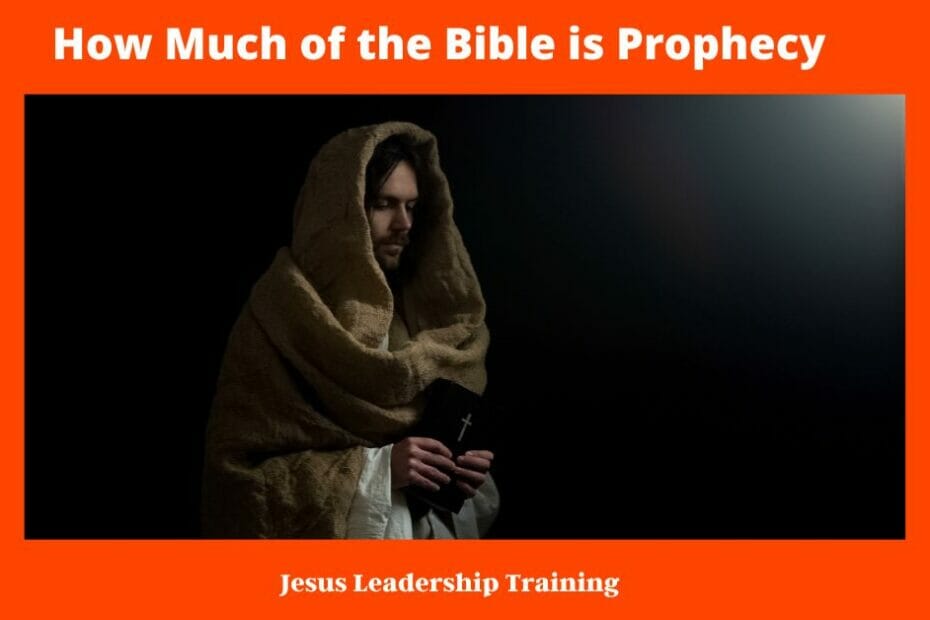The Bible is full of prophecies. Some people believe that 100% of the Bible is prophecy, while others believe that only certain parts are prophetic. In this blog post, we will explore how much of the Bible can be classified as prophecy. We will also discuss some of the most famous prophecies in the Bible, and how they have been interpreted over time.
Table of Contents
How Much of the Bible is Prophecy
The Bible is the sacred text of Christianity, and it contains a great deal of prophecy. In fact, some bible students’ estimates suggest that up to 25% of the Bible is prophetic in nature. This includes both predictions of future events and moral guidance for living a righteous life.
Prophecy is an important part of the Bible because it helps us to understand God’s will for our lives. It also provides comfort and hope in times of trouble, as we know that God has a plan for His people. The Bible is full of incredible prophecy, and it is a powerful tool for understanding the mind of God.
What is Biblical Prophecy?
Biblical prophecy is a message that God has given to His people through His prophets. It is a revelation of His will and purpose for His people and for the world. Prophecy is not simply predictive; it is also forth-telling. It declares the purposes of God, and calls His people to repent and turn from their wicked ways.
Biblical prophecy is always fulfillment centric. It looks forward to the day when all of God’s promises will be fulfilled in Christ. In the meantime, the prophecy continues to be relevant and significant for our lives today. As we read about the fulfilled prophecies of Scripture, we are encouraged and strengthened in our faith. And as we see prophecies being fulfilled in our own day, we are reminded that God is still at work in this world and that His purposes will ultimately be accomplished.
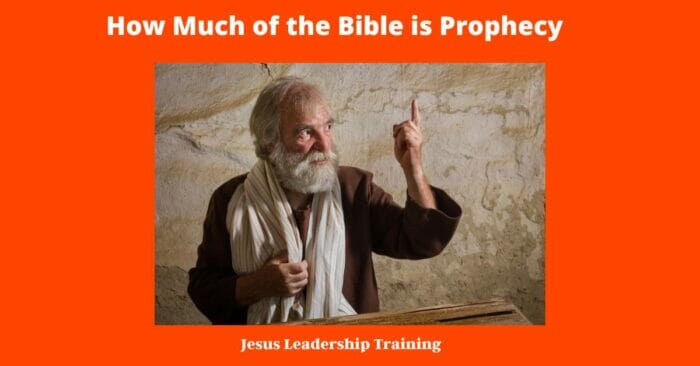
What was the First Prophecy Given?
The first prophecy given is found in Genesis 3:15. It is the first mention of the gospel and heralds the hope of redemption for sinners. The serpent, Satan, had just deceived Eve into sinning against God. In response, God gave this prophecy: “I will put enmity between you and the woman, and between your offspring and hers; he will crush your head, and you will strike his heel.” This prophecy has two fulfillments.
First, it was partially fulfilled when Jesus was born of a woman (Mary) and defeated Satan by living a perfect life and then dying on the cross. Although Satan bruised Jesus’ heel (killed him), Jesus crushed Satan’s head (defeated him). This victory over Satan was accomplished by Jesus’ resurrection from the dead.
The second fulfillment of this prophecy will occur when Jesus returns to earth a second time. At that time, He will completely crush Satan’s power, once and for all, and establish His everlasting kingdom. The First Prophecy Given is found in Genesis 3:15 ushering in the hope of redemption for sinners.
List of 10 Major Old / New Testament Prophecies
As any bible teacher knows, the Old Testament is full of prophecies. Here are 10 of the most significant:
1. The coming of the Messiah. Isaiah 7:14 prophesies that a young woman will give birth to a son who will be called Immanuel, meaning “God with us.” This prophecy was fulfilled when the Virgin Mary gave birth to Jesus Christ.
2. The birth of Christ in Bethlehem. Micah 5:2 prophesies that the Messiah will be born in the town of Bethlehem. This prophecy was fulfilled when Jesus was born in Bethlehem.
3. The flight into Egypt. Hosea 11:1 prophesies that the Messiah will be called out of Egypt. This prophecy was fulfilled when Jesus and his family fled into Egypt to escape the persecution of Herod.
4. The return from Egypt. Matthew 2:15 quotes from the prophecy of Hosea 11:1, saying that it was fulfilled when Jesus and his family returned from Egypt after Herod’s death.
5 The ministry of John the Baptist. Isaiah 40:3 prophesies that a messenger would prepare the way for the Lord’s coming. This prophecy was fulfilled when John the Baptist came on the scene, preaching repentance and baptizing people in preparation for Christ’s ministry.
6 The anointing of Christ by the Holy Spirit. Isaiah 61:1-2 prophesies that the Spirit of the Lord would be upon the Messiah, anointing him for his ministry. This prophecy was fulfilled when Jesus was baptized by John and anointed by the Holy Spirit.
7 The triumphal entry into Jerusalem. Zechariah 9:9 prophesies that the Messiah will come riding on a donkey into Jerusalem, fulfilling an ancient Hebrew prophecy about a king coming in peace . This prophecy was fulfilled when Jesus rode into Jerusalem on a donkey, greeted by crowds waving palm branches and yelling “Hosanna!”
8 The betrayal by Judas Iscariot. Psalm 41:9 prophesies that one of Jesus’ close friends would betray him. This prophecy was fulfilled when Judas betrayed Jesus for 30 pieces of silver.
9 The abandonment by his disciples. Zechariah 13:7 prophesies that all of Jesus’ disciples would forsake him. This prophecy was fulfilled when all but one of Jesus’ disciples abandoned him during his arrest and crucifixion.
10 The resurrection from the dead. Psalm 16: 10 – 11 prophesies that after being put to death , Jesus would rise from the dead and ascend to heaven.
This prophecy was fulfilled when Christ rose from the dead on Easter Sunday and ascended into heaven 40 days later. As these prophecies show, God has been at work throughout history, carrying out his plan for salvation through his Son, Jesus Christ. These 10 prophecies are just a small sampling of all the ways God has revealed himself to us through his Word.
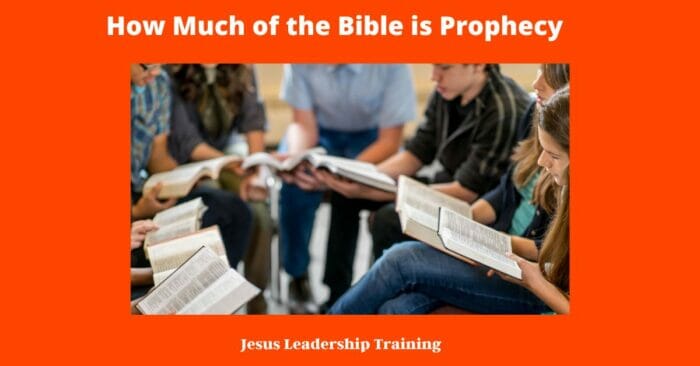
How was The Holy Spirit involved in Bible prophecy?
The Holy Spirit was involved in Bible prophecy in a number of ways.
First and foremost, He inspired the human authors of Scripture to write down the words that God wanted them to record (2 Timothy 3:16).
In addition, the Spirit helped these writers to understand the meaning of the prophecies that they were recording (1 Corinthians 2:10-13).
Furthermore, the Holy Spirit played a role in fulfilling prophecy by coming upon various individuals who were used by God to accomplish His purposes (Luke 1:35; 4:18; Acts 19:6). Ultimately, it is clear that the Holy Spirit was intimately involved in the creation of Scripture and that His work continues to be evident throughout its pages.
What was the Gift of Prophecy in the New Testament
The gift of prophecy was given to certain individuals in the New Testament for the purpose of declaring the will of God. These men and women were not omniscient, but they were given special insight into future events as well as the ability to communicate God’s message to others.
The gift of prophecy was not restricted to predicting the future, but also included forth-telling – proclaiming the Word of God. Prophetical utterances were often in the form of guidance, encouragement, or exhortation, designed to equip believers for service and spiritual growth.
Although the gift of prophecy is no longer operative today, we can still learn from those who were entrusted with this special gift. Their words provide insight into God’s character and His will for our lives. As we study their prophecies, we can grow in our understanding of who God is and how He works in the world.
What are the 7 Major Messianic prophecies in Judaism?
Judaism is one of the oldest religions in the world with a history that spans over 4000 years. Unlike other religions which have their origins in a single person or event, Judaism has its roots in a series of covenants between God and his people. Throughout history, there have been many individuals who have claimed to be the Messiah, but only one who fulfilled all of the Messianic prophecies. The Major Messianic prophecies are:
1) The Messiah will be descended from King David- In order for the Messiah to sit on the throne of David, he must be a descendant of David.
2) The Messiah will be born in Bethlehem- This prophecy was fulfilled when Jesus was born in Bethlehem, as prophesied by Micah 5:2.
3) The Messiah will be preceded by a messenger- This prophecy was fulfilled when John the Baptist came on the scene, as prophesied by Isaiah 40:3.
4) The Messiah will perform miracles- Jesus performed many miracles during his ministry, confirming that he was indeed the Messiah.
5) The Messiah will be rejected by his own people- Even though Jesus was born a Jew, he was rejected by many of his own people.
6) The Messiah will be put to death- Jesus was crucified, fulfilling this prophecy.
7) The Messiah will rise from the dead- On the third day after his crucifixion, Jesus rose from the dead, proving that he is indeed the Messiah. These are just some of the Major Messianic prophecies that were fulfilled by Jesus Christ. When you examine these prophecies, it becomes apparent that Jesus is indeed the long-awaited Jewish Messiah.
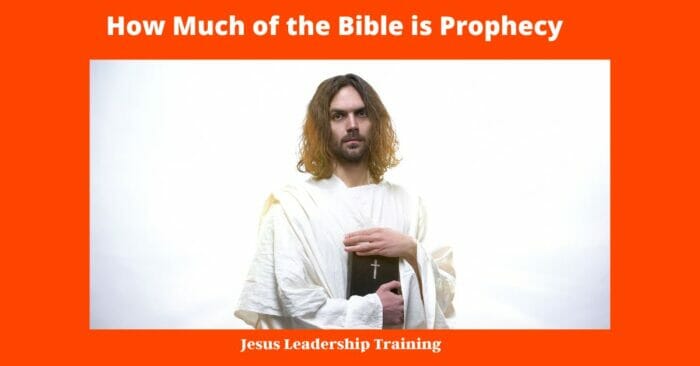
What are the Bible Prophecies of the Last Days?
The Bible is very clear that in the last days, there will be a time of great tribulation, unlike anything that has ever been seen before or will ever be seen again. Jesus, Himself said that in Matthew 24:21.
He went on to say that if those days were not shortened, no flesh would survive, but for the sake of the elect, those days will be shortened.
The Bible also says in 2 Timothy 3:1-5 that in the last days, people will be lovers of themselves, lovers of money, boastful, proud, abusive, disobedient to their parents, ungrateful, unholy, unloving, unforgiving and slanderous, without self-control and brutal. In addition to all of this, the Bible says in Revelation 13:7 that in the last days there will be a worldwide economic system in place that requires everyone to receive a mark on their right hand or forehead in order to buy or sell things.
So what does all of this mean? It means that the last days will be a time of great trials and tribulations. The world will be full of people who are selfish and only care about themselves. There will be a lot of fighting and wars. And eventually, there will be an economic system in place that controls everything.
However, despite all of this, we can take comfort in knowing that Jesus is coming back and He will defeat all our enemies. So even though the last days will be difficult, we can rest assured knowing that Jesus is coming back and He will make everything right again.
What Prophecies did the Apostle Paul Share?
The apostle Paul was a man who had many visions and revelations from God (Acts 9:10-12, 18; 16:9-10; 22:17-21; 23:11; 27:23-24). He was not only given many personal messages from the Lord, but he also had the unique opportunity to hear things that would happen in the future. Here are three of the prophecies that Paul shared with others:
1. The Jews would reject and persecute Christians (Acts 9:23; 13:46; 14:2, 19; 17:5; 18:6, 12-13; 21:28; 22:19-21; 23:12).
2. The gospel would be preached to the Gentiles (Acts 11:18; 13:46-47; 15:14-17).
3. Christ would return to earth (Acts 1:9-11; 3:19-21).
Most of These prophecies have all come true, just as Paul said they would. This shows us that Paul was a man who truly had the Lord’s ear and that we can trust the words he wrote in the Bible. When we read Paul’s words, we can be confident that they come from a man who heard directly from God
What effect does the Fulfillment of Prophecy have on Christians?
When we see Bible prophecy being fulfilled exactly as it was written, sometimes centuries in advance, we can have complete confidence that every other word in the Bible is true. And that is a game-changer when it comes to how we live our lives. If we know that God is real and that His Word is true, then we will want to obey Him and live according to His standards.
On the other hand, if we doubt that the Bible is really from God, then we are free to pick and choose which parts of it we will follow and which parts we will ignore. But when we see prophecy being fulfilled, it removed all doubt about the source of the Bible and gives us a clear motivation to follow everything it says.
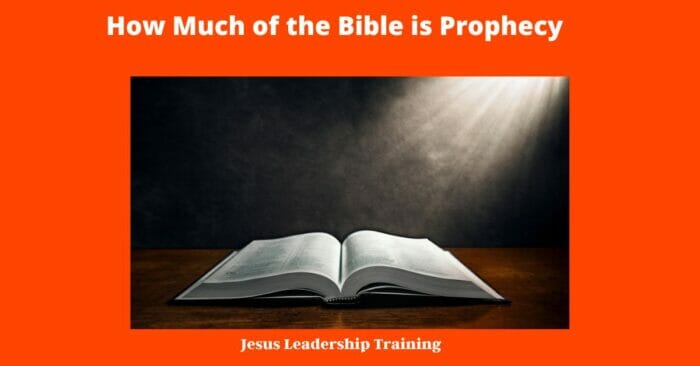
What Major Prophecies did the Book of Isaiah Share?
The book of Isaiah is one of the most important books in the Old Testament. It is also one of the most complex, with a wide range of themes and messages. Among other things, Isaiah foretells the coming of the Messiah, the Suffering Servant who would be betrayed and suffer for the sins of humanity.
He also predicts the return of the Jews from exile, and the eventual establishment of a new Jerusalem. These and other prophecies have been incredibly significant in shaping Jewish and Christian beliefs, and they continue to resonate with readers today. As we explore these prophecies, we can better understand God’s plan for humanity and our place in it.
What Biblical prophecies for the Jewish people in Book of Daniel?
The book of Daniel is a record of God’s dealings with the nation of Israel during the Babylonian captivity. It contains a number of prophecies concerning the future of Israel, both in terms of their liberation from captivity and their ultimate restoration to their own land.
Perhaps the most famous prophecy in the book is that concerning the seventy weeks, which foretells the coming of the Messiah and the eventual establishment of his kingdom. Other prophecies relate to the rise and fall of various world empires, including those of Babylon, Persia, Greece, and Rome. Collectively, these prophecies serve to remind us that God is sovereign over all history and that his purposes for Israel will ultimately be fulfilled.
What are the Most Prophetic Books in the Old Testament?
The Old Testament is full of powerful stories and characters that have shaped the religious beliefs of billions of people. While the entire Bible is considered sacred by many Christians, there are a few books in particular that are seen as particularly prophetic.
The book of Isaiah is one of the most significant prophetic books in the Old Testament, as it includes numerous predictions about the coming of the Messiah. The book of Jeremiah is another key prophetic book, as it foretells the destruction of Jerusalem and the exile of the Jewish people.
Finally, the book of Daniel contains a number of predictions about future events, including the rise and fall of various empires. These three books are just a small sampling of the many prophetic books in the Old Testament, each of which has had a profound impact on religious belief and practice.
Why were God’s Servants called Prophets in the Old Testament?
The Lord would choose certain men to be His prophets. These chosen men were to speak on God’s behalf. They were to communicate His message to the people of Israel. The main purpose of a prophet was to reveal God’s will and warn His people of coming judgment. A prophet was also used by God to declare blessedness and pronounce imprecations or curses. In the Old Testament, the Lord called His prophets “His servants” because they belonged to Him and He owned them lock, stock, and barrel.
Their very lives were at His disposal. For example, when the prophet Elijah was taken up into heaven in a whirlwind, he left his mantle behind for Elisha (2 Kings 2:13). This signified that Elijah’s prophetic ministry was now transferred to Elisha. In like manner, when a prophet died, his prophetic office died with him and passed to someone else. Thus, the title “prophet” is not hereditary; it is not passed down from father to son. Rather, it is a divine appointment.
When a man was called by God to be a prophet, he became God’s servant-prophet. He no longer belonged to himself; he now belonged to the Lord who had called him. This is why all true prophets in the Old Testament are referred to as “servants of the Lord.” As such, they were responsible only to Him. They were not answerable to any human authority, not even to the king himself. In short, a prophet’s loyalty was first and foremost due to the Lord who had called him into service.
What are False Prophets?
A false prophet is someone who claims to speak for God but whose message does not come true. False prophets are found in both the Old Testament and the New Testament. In the Old Testament, there were many false prophets who claimed that they had a message from God, but their message did not come to pass.
Sometimes they would even say that a particular event was going to happen, but it would not happen. As a result, the people who followed them have led astray. In the New Testament, Jesus warned about false prophets and told his disciples to be on guard against them. He said that they would come in sheep’s clothing but would be inwardly ravenous wolves. False prophets are still around today.
They often claim to have special knowledge or insight that others do not have. They may also claim that they have received a prophecy from God. But as Christians, we should be very careful about following anyone who claims to be a prophet. We should always test their prophecies by Scripture to see if they are truly from God.
Do we Have False Prophets Today?
Do we have false prophets today? This is a question that has been asked throughout history. The short answer is yes, we do have false prophets today. But what exactly is a false prophet? A false prophet is someone who claims to speak for God but who actually speaks words that are contrary to what God has said.
False prophets can be found in any religious group, and they often use their positions of authority to lead people astray.
Today, there are many false prophets who claim to be Christian. They may teach that Jesus was not really God, that salvation does not come through faith in Christ alone, or that there are other ways to be saved besides trusting in Christ.
These false teachers often twist Scripture to support their false beliefs, and they can be very convincing. Many people are led astray by false prophets, but the good news is that we can test everything against what Scripture says. When we do this, we will be able to see whether or not someone is a true prophet of God.
How to Tell the Difference between a True and False Prophet?
To understand how to tell the difference between a true and false prophet, we must first understand what a prophet is. In the Bible, a prophet is someone who speaks on behalf of God, often with a warning or message for His people. Prophets can be found in both the Old and New Testaments. In general, however, there are four main characteristics that all true prophets share:
1) Their message always points to God.
2) They never contradict what God has already said in His Word.
3) They call people to turn away from sin and turn back to God.
4) They are always 100% accurate in their predictions.
On the other hand, false prophets can often be recognized by the fact that their message does not point people to God but instead leads them away from Him. Additionally, false prophets will often contradict what the Bible says, and their predictions will often be inaccurate. Finally, false prophets will often call people to follow them rather than God.
By understanding these four characteristics, we can easily discern whether someone is a true or false prophet. If we encounter someone who claims to be a prophet but does not meet these criteria, we can be sure that they are not from God.
Final Thoughts – How Much of the Bible is Prophecy
It is hard to determine but a reasonable guess is that 25% + of the Bible is prophetic. The study of prophecy from God’s Prophets in recent years. Old Testament Prophecies concerning the house of Israel and God’s Holy City are so that the people today can learn. The Book of Revelation also tells of new heavens, from the first coming of christ to the second coming of Christ.
God Bless Greg


